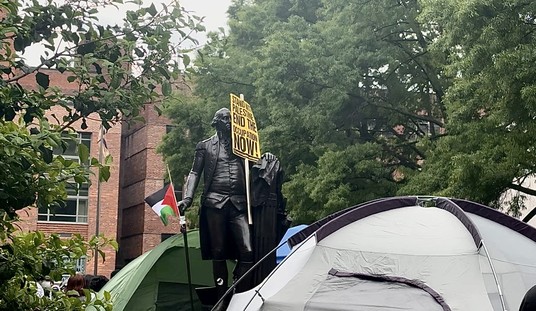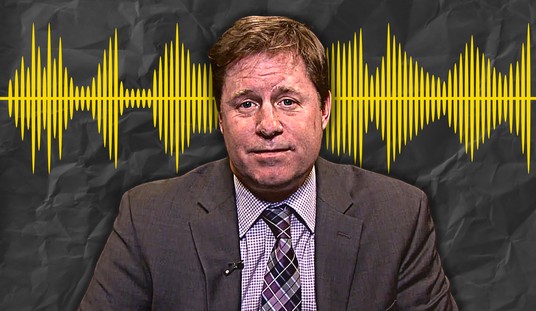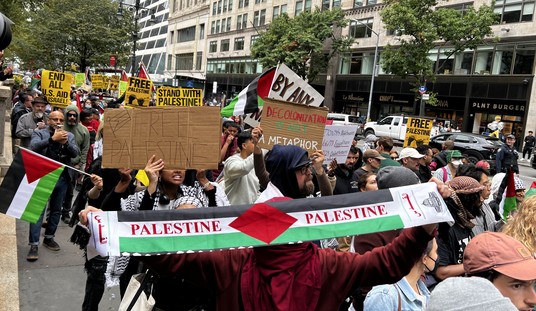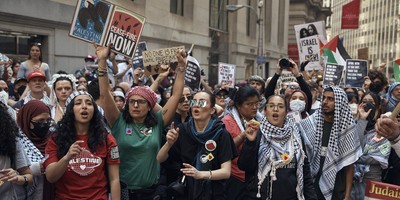On April 6, Dr. Aruna Khilanani spoke to "The Psychopathic Problem of the White Mind," an event given at the Yale School of Medicine’s Child Study Center. It was just as crazy as you'd expect such an event to be, with Khilanani saying "I had fantasies of unloading a revolver into the head of any white person that got in my way, burying their body, and wiping my bloody hands as I walked away relatively guiltless with a bounce in my step. Like I did the world a f*cking favor."
Khilanani also discussed how she cut white people out of her life:
This is the cost of talking to white people at all. The cost of your own life, as they suck you dry. There are no good apples out there. White people make my blood boil. Around five years ago, I took some actions. I systematically white-ghosted most of my white friends. And got rid of the couple white BIPOCs that snuck in my crew too. I stopped watching the news. Once I started, I couldn’t stop. I have less than one percent left. It was also a public service. I had fantasies of unloading a revolver into the head of any white person that got in my way, burying their body, and wiping my bloody hands as I walked away relatively guiltless with a bounce in my step. Like I did the world a f*cking favor.
The talk, which Yale has since made available only to those with a school ID, has gotten attention after being highlighted by Bari Weiss' substack, in a piece from Katie Herzog which included not just audio of the talk from April, bit of a more recent interview between Khilanani and Herzog.
Khilanani and Herzog discussed how "there were a lot of delays before Yale posted it," with many people asking for it given different responses. with Khilanani noting "Of course they didn’t call me during any of this." She chalked it up to "white amnesia, 'I just suddenly remembered that we are having this IT difficulty. Whoops!'"
"Learning objections" listed on the event's poster included:
Recommended
- Set up white people’s absence of empathy towards black rage as a problem
- Understand how racism is part of the mind that white mind that arose during colonialism with a series of lies around violence.
- Understand how white people are psychologically dependent on black rage.
As for why the idea "Needs Assessment," the poster had this to say:
Everyone is talking about race right now. Especially white people. And yet white people seem to be losing it. The number of Karen and 'It's my right to not wear a mask' videos are exploding. How do we understand this psychologically.
Sure enough, the interview between Khilanani and Herzog did address the more memorable parts of the talk at Yale.
...Do you find that this sort of rhetoric is effective or do people reject what you're saying because it is violent?
Before I gave the talk, I said, I want you to observe your thoughts and feelings as I talk. I said, there's a difference between a thought, a fantasy, and an action. Now, my reflection on my own rage was actually that I was feeling impotent. So that's where I was going with that. And kind of normalizing feelings of hatred. This is stuff that exists and I need to dive deep within myself to reflect on how it is that I got here. So there is a reality here, like did I actually cut white people out of my life? Absolutely.
When you were going through this process of cutting white people out of your life, what specifically would lead you to that decision?
Having the same conversations with people on repeat. People getting defensive, needing to argue, being unable to take in what I’m saying. An ability to say they’re not racist. And on repeat. I think my favorite responses were, “Well, you’re really sensitive. You’re over-reacting.” Focusing on my feelings. White women will often tell me that I’m really edgy and I’m like, “That’s so interesting that you're focused on my edginess. Have you reflected on why they might be?” But they can’t go there.
Khilanani was rather forthcoming with Herzog, including on how she went from academia to her practice. In case you had any doubts, she also doesn't even bother trying to be "neutral" or objective:
I know you have a background in critical theory. How did you go from academia to psychiatry?
My masters is in humanities and the focus is largely on critical theory. I don't know if you’re familiar with the University of Chicago, but it was very critical theory-heavy when I went. I did pre-med stuff in undergrad and had always been thinking of these issues. I also majored in English Lit and wondered about other ways of thinking. And I was interested in the unconscious for a long time, so it wasn't that big of a jump for me.
From my experience, therapists tend to act pretty neutral. Is your practice like that?
Not at all. I think that's a part of the racist aspect of psychoanalysis, this idea that people are neutral is, I think, a complete fiction. But I would say that who I am inside the room is exactly who I am outside the room. My patients have a pretty good sense of who I am. I’m not the stereotype of the psychoanalyst where I’m withholding or won’t say anything or will just be there as a sounding board because that sounds really fucking cold and empty. That sounds awful. I do have people sit with their emotions and get into unconscious stuff but I’m there as myself to be with them.
There had also been further discussion on the idea of "colonialism," which Khilanani offered as the reason for why "white people suffer from problems of their own mind... a fundamental issue I think that is very unique to white suffering and I think that’s their own mind."
Donald Trump did come up briefly in the interview, as Herzog asked Khilanani to "explain" why Trump had the share of Black and Latino votes that he did in 2020. The doctor merely chalked it up to "internalized whiteness."
























Join the conversation as a VIP Member